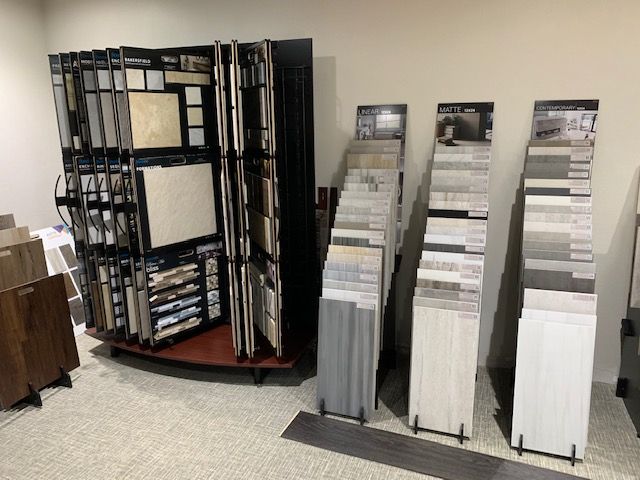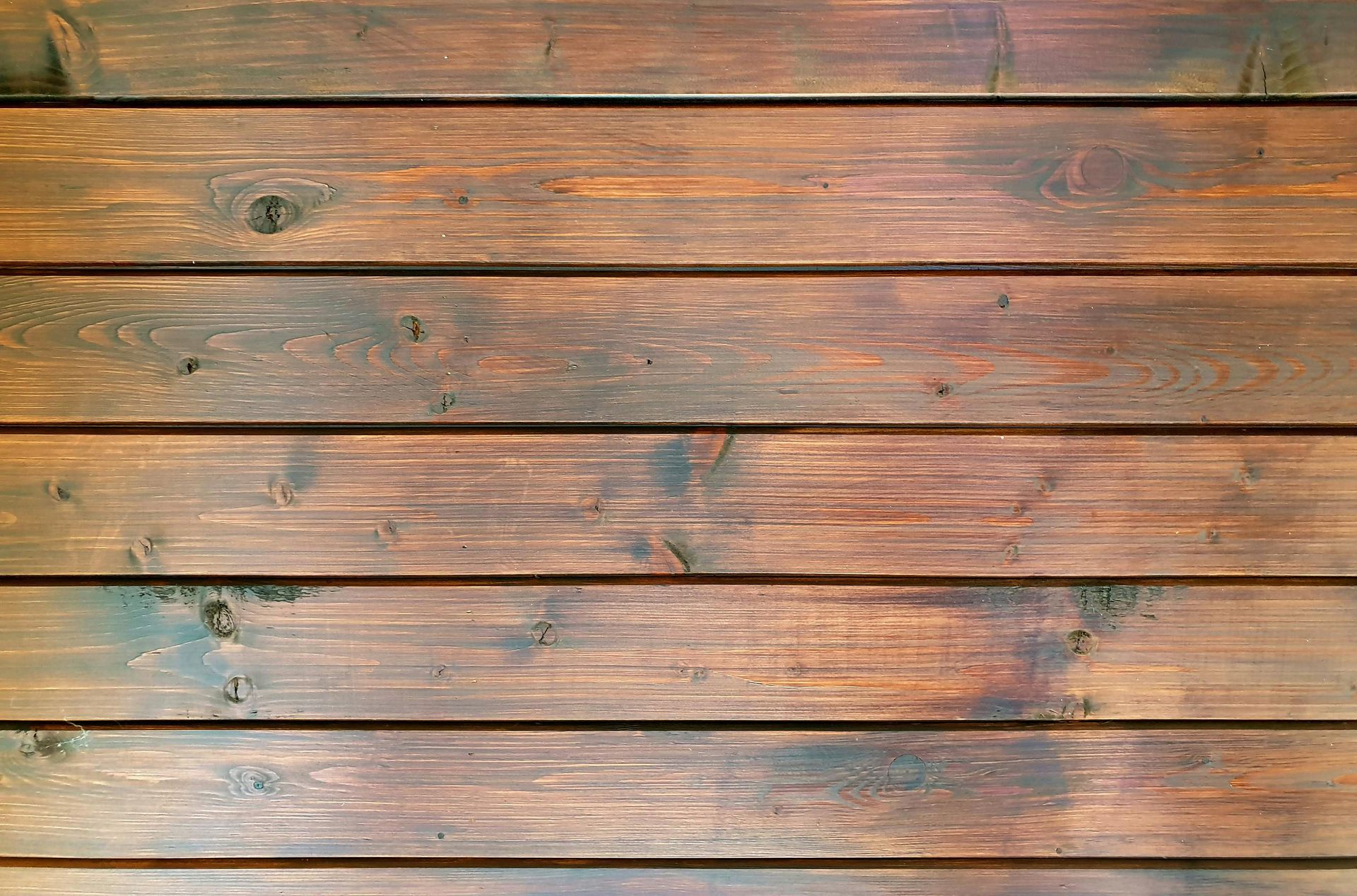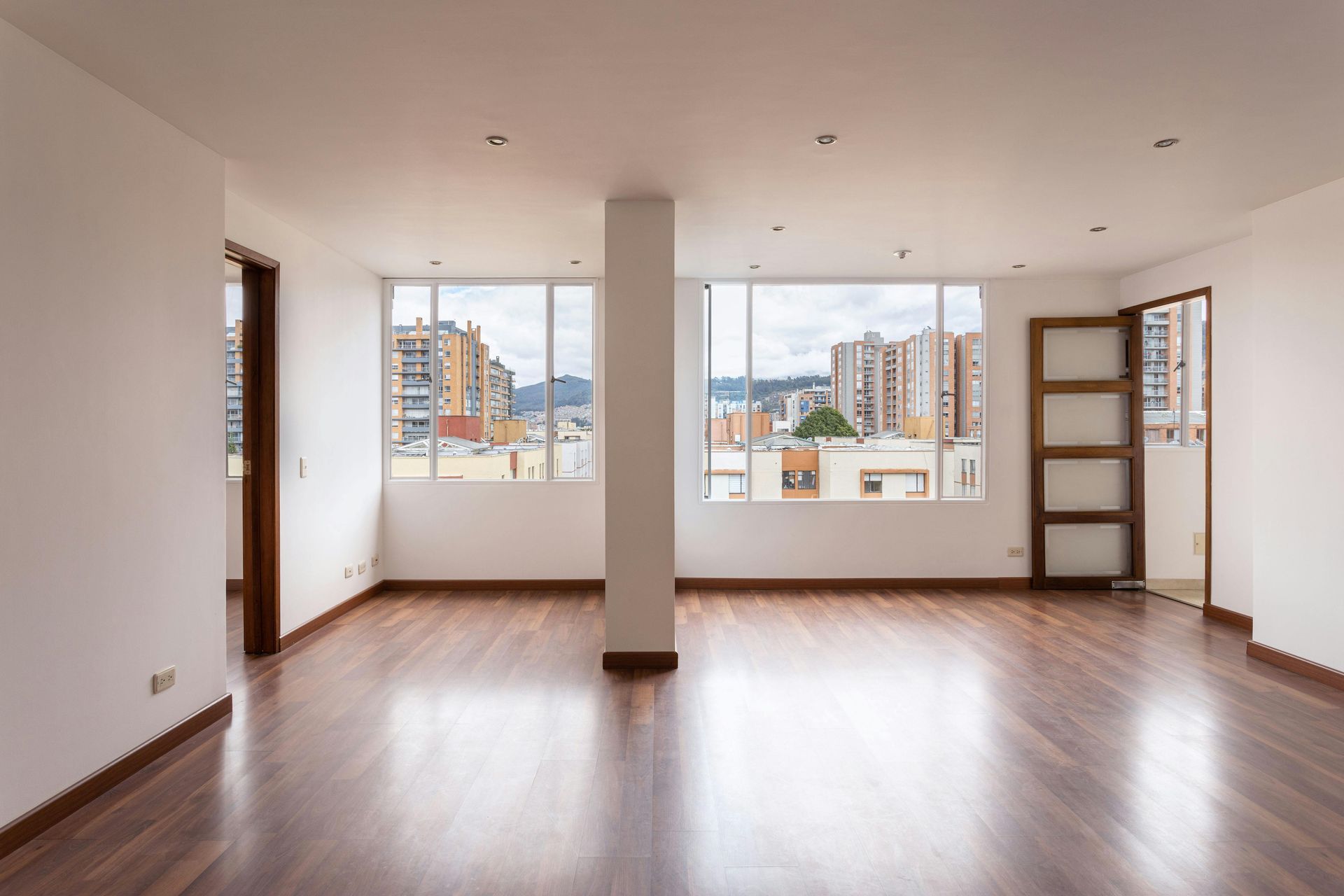5 Types of Flooring to Consider

The flooring you choose for the largest surface in your home should reflect your budget, lifestyle, and particular preferences. When deciding which flooring is ideal, it's important to consider the function and design of each area, as some materials are better suited to certain settings.
Wood, engineered flooring, vinyl, tile, and carpeting are all popular choices. Find out all you need to know about the most popular flooring options, the benefits of each material, how they should be used, and the average price tag for new floors.
Hardwood Flooring
Hardwood floors are made from a single slab of milled wood and are entirely composed of wood. Cherry, maple, oak, and walnut are only some of the most well-liked hardwood trees. Since it can be used in various settings and is of high quality, it is a popular choice among homebuyers for their flooring.
A professional hardwood floor cleaning once a month and a fresh coat of finish every three to five years is all it takes to keep your hardwood floors looking fantastic, but it is one of the more expensive flooring materials on the market. Hardwood flooring installation has a wide price range, but typically it is between $5 and $10 per square foot.
Pros
- Benefits the value of the residence
- In a position to undergo repeated refinishing
- Possibilities abound
Cons
- Expensive
- High-traffic locations increase the likelihood of wear and tear and moisture damage.
- It's not a good idea to put it in the basement, laundry room, or bathroom.
Engineered Wood Flooring
The price of engineered wood flooring is far lower than that of solid wood flooring while still maintaining the same authentic look. The floor is made of a thin hardwood layer glued to a top-notch plywood base. It's as long-lasting as solid hardwood flooring if maintained properly.
DIYers may successfully install engineered wood flooring, saving you money over hiring a professional installer. Engineered wood flooring installation costs between $4 and $9 per square foot, on average.
Pros
- DIY-friendly
- Authentic hardwood veneers are the top layer.
- The material is more water- and moisture-resistant than actual wood.
- The likelihood of warping is reduced
Cons:
- A wide variety of available installation techniques
- Only one refinishing is allowed.
- Not resistant to fading
- Very variable quality; certain areas may be spongy to the touch
- Generates Volatile Organic Compound Emissions
Laminate Flooring
Compared to hardwood or tiles, laminate is a more cost-effective solution for those looking for a carpet replacement.
The flooring is constructed from a particle board wood basis covered with a photo of wood or tile that is then sealed under a clear plastic sheet. Laminate flooring is incredibly versatile in terms of both texture and color, and it is also very easy to install yourself. Laminate flooring installation is typically priced between $3 and $7 per square foot.
Pros
- Cheaper than wooden alternatives
- Simple to clean
- Scratch-resistant and DIY-friendly
- Available in a wide variety of colors and designs, there are some drawbacks to these options
Cons
- Fragile in the face of humidity
- Cracks easily
- Doesn't have the texture or appearance of real wood
- Makes a hollow noise when walked on
Vinyl Flooring
Vinyl flooring is highly impervious to water and will not be harmed if water is allowed to pool on it for long periods of time. It's plastic and comes in boards, tiles, and sheets.
The durability and design options of luxury vinyl flooring have led to their recent rise in popularity. Two common types are luxury vinyl plank (LVP) and luxury vinyl tile (LVT). Costs per square foot for installation can range from $1.50 (sheet vinyl) to $6 (LVP and LVT) or more.
Pros
- Suitable for use in a variety of settings
- Durable
- DIY-friendly water and fade resistance
- Options abound for the actual layout
- Simple care
Cons
- Comparing LVP and LVT to laminate, the former is more costly.
- Cost-effectiveness ratios that are lower than those of wood
Tile
Tile flooring is frequently used in wet environments, such as bathrooms and kitchens. Tiles are often made of ceramic or porcelain. Tile flooring can be found in many different colors and shapes and is resistant to water damage.
Different materials have different installation prices; for example, glazed ceramic is more affordable than porcelain tile. Ceramic tile can be purchased for approximately $2.50 per square foot, whereas porcelain tile can cost anywhere from $3 to $10 per square foot.
Pros
- Waterproof
- Durable
- Long-lasting
Cons
- Expensive
- Difficult to set up
- There is a lot of work involved in the setup phase.
- Harsh and slick
Stone Flooring
Granite, marble, travertine, and sandstone are just a few of the natural stones used to create beautiful indoor and outdoor floors. Stone, like ceramics and porcelain, is highly long-lasting and impervious to water.
The level of upkeep required on a stone floor depends on its finish. On the other hand, natural stone flooring is hard to beat when it comes to aesthetics and durability. Average prices are between $5 and $10 per square foot.
Pros:
- A conspicuous style that lasts a long time and is impervious to water
Cons:
- Expensive
- Difficult to set up
- There is a lot of work involved in the setup phase.
- Harsh and slick
- Not easy to keep up
In conclusion
It's more complicated than picking the flooring that looks the best or is the cheapest. The choice is heavily influenced by several elements, including moisture levels, durability, ease of maintenance, cost, and availability of other options. While purchasing new flooring can be costly, finding the sweet spot between practicality and aesthetics is important. Be sure to discuss your ideas with our Flooring Specialists at Floors For Less to ensure the job is done to your satisfaction. To make sure the process is done right, you should research several types of materials before your consultation and come to us with your questions.







